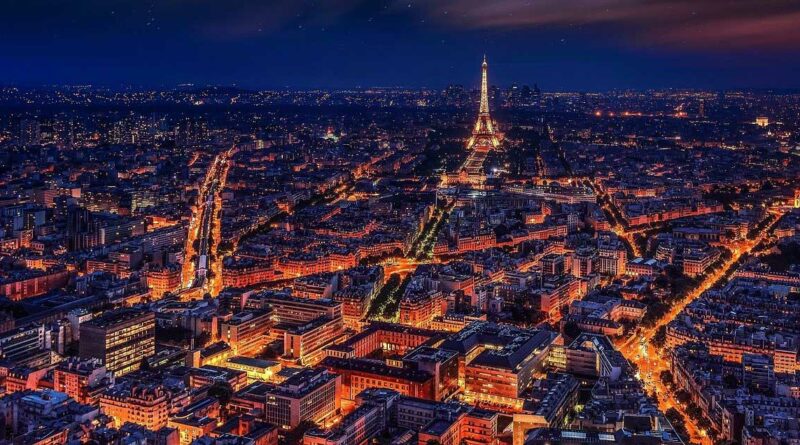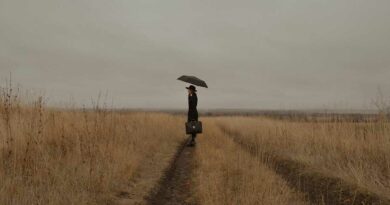15 Things To Know Before Your First Trip To Paris
Everyone remembers their first trip to Paris. Well-groomed streets, architecture of the period of Ottomanization, aromas of freshly baked bread and chocolate rolls accompanying you everywhere. Paris has that special charm that attracts millions of visitors every day.
But there are pitfalls, for example, complicated language or arrogance that Parisians are often credited with – what to do with them?
Fear not, we have compiled a guide to Paris: how to navigate, not annoy the locals and get incredible pleasure from this trip.
When to go? Not in August
The myth that life in Europe freezes in August is not a myth. Paris, of course, does not compare in this sense with the heat-melted small towns of Italy and Spain, but it is worth remembering that in August most Parisians go on vacation, and many restaurants and other small businesses are closed for several weeks.
However, in Paris, any month has its advantages, even August. For example, at this time, you will definitely avoid crowds and lines. Winters are not too cold here, and Christmas Paris looks like one continuous postcard. Well, there is no need to talk about spring Paris at all – the best time for romantics.
Learn at least a couple of basic words
Most Parisians understand English perfectly, but they are reluctant to speak it, because it infringes on their national pride (since the Hundred Years War). So if you immediately speak to a Frenchman in English, he may pretend not to understand. Therefore, start any conversation in French, even if you only know two words, and as soon as the Frenchman sees that you have difficulties with pronunciation, he will immediately start speaking in English. These are the rules of the game!
The big four words to remember are “bonjour” (hello), “au revoir” (goodbye), “síil vous tourniquet” (please), and “merci” (thanks). Download Duolingo or any other language app for easy memorization.
By the way, everyone should be welcomed in Paris. Say “bonjour” (or “bonsoir” in the evening) and “au revoir” to the store owner, salesperson, and waiter every time you enter and leave the establishment.
Choose housing for the expected effect
Finding out where to stay in Paris takes a bit of exploring the city.
All Parisian districts offer a variety of hotel and Airbnb apartment options, so it all depends on what type of atmosphere you’re looking for. For Parisian charm and high-end shopping, head to Saint-Germain or Marais. For something out of the ordinary, try settling in the 19th and 20th arrondissements.
If you absolutely need to live in the city center, look for places in districts 1 through 4-1. And for the typical, artsy Parisian mood – the hilly 18th arrondissement, especially near Montmartre.
Don’t hug
Instead, do what they call “Faire la bise” in France: a kiss on each cheek is a standard greeting for both men and women. Handshaking is also best avoided. And Parisians also tend to stare at new people – this is something that usually makes an ignorant tourist uncomfortable. No, there is nothing stuck in your teeth, and there is no stain on the sweater – for locals, this is just a feature of behavior. You will quickly get used to it.
Pull yourself together
The best way to get around Paris is on foot, and the city is very easy to navigate. It’s incredibly difficult to get lost – there are 20 counties, and each has its own system of signage on the streets, so it’s easy to guess which jrheut you are in now. Arrondismans are organized counterclockwise in the form of a snail; Find the 1st arrondissement on the map and count to 20 by moving your finger in a counterclockwise circular motion. Voila!
Don’t even try to take a taxi at the airport
The taxi itself in Paris is good, but it will cost you 45 euros. Use RER – something like our electric trains, only much more civilized. They can be reached from Paris – Charles de Gaulle airport for 10 euros, and if you immediately buy a metro pass for a week, the trip to the airport will be included.
Always have a couple of euros in cash
Most supermarkets and restaurants accept cards, but for occasional trips to bakeries (and they are everywhere, as you know, so cash will definitely come in handy) you should always have free euros in your pocket. Cash will be needed in both grocery and flea markets.
Luxembourg Gardens are gorgeous, but there are many other parks
For picnics, morning jogging and weekend walks, Luxembourg is ideal. But there are many other parks in Paris for every occasion. For modest picnics on the left bank – Parc Montsouris. To explore the area around Belleville – Parc Buttes-Chaumont. For quiet reading in a picturesque location – Parc Monceau.
And don’t forget about the small city museums
If you are in love with the Impressionists, the Musée d’Orsay is your place. The Louvre can be overwhelming, of course, but only if you’re willing to put on a pair of comfortable sneakers and hustle in line with Asian tourists. After looking at Venus and Mona, do not rush to leave: first stroll through the luxurious apartments of Napoleon III.
Also, don’t forget that Paris has such places as the Pompidou Center for Contemporary Art, the Medieval Museum and the Rodin Sculpture Museum. And whatever you plan in Paris, be sure to check out Monet’s eight water lily canvases in the tiny Orangerie Gallery (at the western end of the Tuileries Gardens).
By the way, on the first Sunday of the month, admission to all Parisian museums is free. Will it be crowded? Yes. Is it economical? Yes, too. Should you squeeze in all of your scheduled museum hikes on one Sunday? Definitely not – prioritize.
As with the Empire State Building in New York, climbing to the top of the Eiffel Tower is expensive and generally not worth it – it’s marketing. You can see the city from the Montparnasse tower or go to Montmartre – the skyline is open.
Day trips outside the city are very convenient
Visit Versailles: The queue to the palace is usually very long, but if you value history, you’ll love it. And on a sunny day, you can just wander around the territory – it’s free.
The closest wine region, Champagne, is an hour away by commuter train (direct train from Gare de l’Est to Reims). And the journey to Burgundy or Bordeaux (train to Beaune / Macon or Bordeaux city) takes about two hours. Incredible! If you go to Burgundy or Bordeaux, stay overnight.
Try more than just French cuisine
The culinary scene in Paris is hardly limited to the art of French cooking. Paris is famous for its variety of foreign cuisines. For deliciously delicious Asian food, head to one of the many restaurants along Rue Belleville. For Middle Eastern cuisine, visit L’as du Falafel. For pizza, for example, at Coinstot Vino, Louie Louie or Tripletta.
Cheese, foie gras, pancakes, croissants – it would be foolish not to taste all this in their country of origin. But do not disdain tiny street food shops or cafes, where three tables can fit at most. Tip: Go to the more “local” areas of the city – 13th, 14th, 10th and 20th. Avoid chain restaurants at all costs, especially those with menus written in English or multiple languages. And don’t waste money and calories on cheap pancakes in front of the Eiffel Tower – they are meant for tourists and are often a stack of dry ready-made pancakes stuffed with Nutella.
Have breakfast in French
A French breakfast is usually an espresso and a chocolate bun or croissant. Sometimes a glass of orange juice can be served for breakfast. If you want a coffee with milk, don’t ask for a latte, just say “un creme” – it will be brought separately in a milk jug. And if you’re not at Starbucks, don’t ask for coffee to go.
Important: Don’t expect quick service. In France, gastronomic leisure is the main national pastime. The waiter will give you enough time to browse the menu (but be sure to close it when you’re ready to order, otherwise the waiter will never show up). Also be prepared to wait a bit between meal changes. Enjoy your meal and do not rush to leave the cafe even after payment. You are in France, and the French are in no hurry.
Tipping is optional: the service is usually already included. But in general, they are still very much appreciated. Just leave a few euro coins on the table – thereby you will not only make a good reputation for the citizens of the CIS, but also greatly improve the mood of the waiter.
Beware of scammers
People trying to sell you sunglasses, umbrellas, Eiffel Tower charms or water bottles around the Eiffel Tower, Montmartre, and Louvre are generally harmless, albeit annoying. But if you suddenly dare to buy something from them, do not be distracted – watch your cards and wallet: pickpockets can be their accomplices. You can also meet supposedly deaf and dumb women who yearn for your sympathy, and “swindle with fingers”: this is when vendors snatch non-French tourists from the crowd, deftly tie a friendship bracelet on their wrists, and then aggressively follow on their heels, demanding payment. These are found mainly on the steps of the Sacré-Coeur Basilica.
Parisians are not rude – they are busy, there is a difference
If you think Muscovites are rude, you will most likely find Parisians rude. Like most city dwellers, Parisians are stressed and always on the move. The French are generally very straightforward and they like strong arguments. For example, they do not like small talk very much – comfortable silence is much preferable for them. This does not mean that they are unfriendly, just rather formal with people they don’t know.
Paris is really as romantic as they say it
A rare example of a justified stereotype. Maybe it’s the atmospheric rainy weather, maybe the sentimental accordion music, or maybe the sparkling Eiffel Tower. Just be prepared that this sensation will take over you for at least a couple of minutes.




